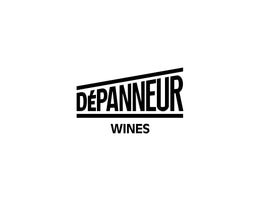
F.X. Pichler - Wachau Gruner Veltliner Loibner Ried Klostersatz 2023 750ml (12.5% abv)
one of the oldest vineyards in the Wachau to be cultivated by the monks of Bavarian and Salzburg monasteries.
Deep, spicy fruit, gentle mineral notes, Fresh meadow herbs, white apple, fine stone fruit, a hint of lime, mineral background. Juicy, pithy, fresh apple, racy structure, salty-lemon, persistent, a lively food wine with ageing potential.
from deep gravel soils near Dürnstein—one of Wachau’s oldest vineyard sites. Organically farmed and native fermented, it’s aged on fine lees in stainless steel for four months.
Dry and tightly structured, it shows citrus zest, white peach, and saline minerality. Bright and approachable now, with the depth to age gracefully over a decade.
Lucas manages the winery together with his wife Johanna, representing the 5th generation to farm these lands.
The Ried Klostersatz is one of the oldest vineyards in the Wachau to be cultivated by the monks of Bavarian and Salzburg monasteries. It is situated in the Loibner basin, within the curve of the Danube river between Dürnstein and Oberloiben. The fine sandy topsoil is overlying gravels that have washed down from the Alps.
Loibner Riesling Ried Klostersatz is from the lieu-dit Oberhauser.
not on a slope. The poor Danubain gravels
He avoids botrytis, even overripeness, and wants to harvest when the grapes are ripe to favor site expression, but he works with skin contact. As of this 2023 vintage, the wines are certified organic, which is not yet stated on the labels.
‘Ried Klostersatz’ is planted on a flatter area near the F.X. Pichler winery within the dramatic curve of the Danube River, between Dürnstein and Oberloiben. The vineyard can trace its roots back to the year 860 AD, when it was tended by Bavarian and Salzburg monks. The vineyard's unique soil composition, with fine sandy topsoil and underlying gravel and pebble stones, encourages a slow and gradual ripening of the Riesling and Grüner Veltliner grapes. As a result, the wines from ‘Ried Klostersatz’ have a deep, spicy fruit character, impressive acidity, complex aromatics and a delicate mineral essence
(The winery left the Vinea Wachau as of the 2020 vintage, thus dropping the use of the Federspiel and Smaragd term. Though they have always been farming organically, they started the process to certification in 2021.)
92 JS Very bright and straight, this has plenty of depth on the medium-bodied palate, but also excellent citric energy. Terrific green-apple and pear crispness at the long, compact finish. From organically grown grapes. Vegan
91 V from the sites of Danubian gravels directly surrounding the winery. It comes with a creamy, smooth, yeasty aspect on the nose, with crushed green foliage of woodruff. The palate is light but has a translucency, a green freeness that echoes with fine white pepper, and a smooth, mellow, savory aspect before tapering into freshness on the finish. (Bone-dry)
94pts Fallstaff Magazine: "Light yellow-green in colour with silver reflections. On the nose, an inviting aroma of yellow apple, subtle blossom honey, a hint of lemon balm, and herbal spices. The juicy, elegant palate is mineral and nimble with integrated acidity, and white stone fruit on the candied finish, already easy to drink.
91 WS Packs a tightly coiled well of power, with a torrent of mineral energy and chalky tannins framing delicate white fruit, grapefruit and apple flavors, before smoke and white pepper move in. Remains focused and crackling, thanks to prickly acidic verve, with a bitter pithy note on the finish. Can be aged 10+ yrs. 100 cases imported.
region:
varietal:
style:
farming/cellar:
pairing:
